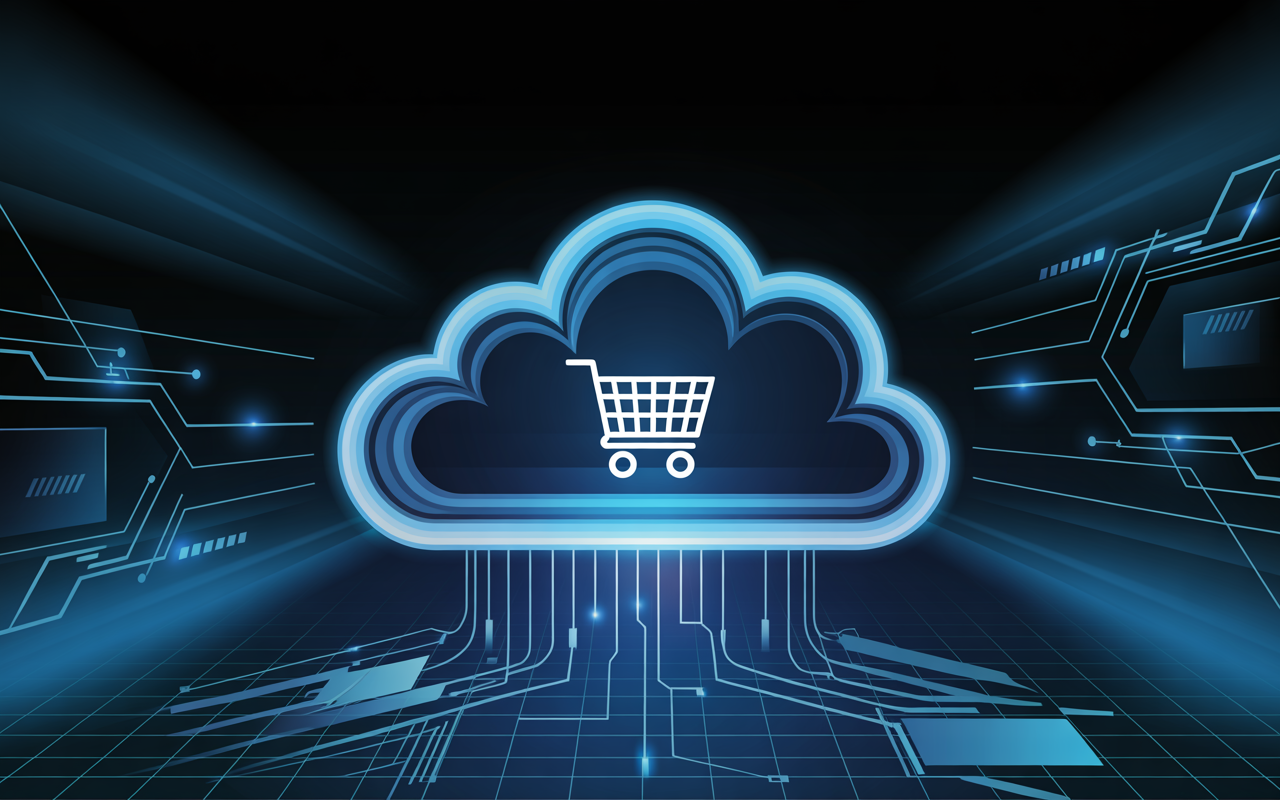
As retail businesses rapidly expand their digital footprints, they are under immense pressure to meet evolving customer expectations, streamline operations, and strengthen their competitive edge. Cloud computing has become a linchpin in this transformation.
In Part 1, we explored how the cloud revolutionizes operational aspects of retail—from inventory management and supply chain optimization to enhanced customer insights and marketing automation. In this second part, we shift focus to the strategic advantages of cloud adoption, covering cost efficiency, security, sustainability, and omnichannel innovation. We also highlight emerging technologies like AI, machine learning, and edge computing that are reshaping the retail experience.
-
No Need for Physical Infrastructure: By migrating to the cloud, retailers can avoid the costs of purchasing and maintaining servers, data centers, and complex IT hardware.
-
Elastic Pricing: Cloud providers offer pay-as-you-go models, letting businesses scale resources up or down based on demand—perfect for retailers navigating seasonal peaks like Black Friday or back-to-school rushes.
-
Reduced Downtime: Many cloud platforms offer strong service-level agreements (SLAs), ensuring high system availability and rapid disaster recovery in case of outages.
-
Smaller IT Teams: Retailers can shift internal tech teams away from system maintenance toward developing new customer-facing features and improving business operations.
-
Encryption and Access Controls: End-to-end encryption, multi-factor authentication, and granular access policies safeguard customer data, payment details, and transaction histories.
-
Compliance with Standards: Leading cloud providers align with regulatory standards such as PCI-DSS, GDPR, and HIPAA, making it easier for retailers to stay compliant across geographies.
-
Real-Time Alerts: Cloud systems can monitor transactions and flag suspicious activities as they happen, allowing immediate investigation and intervention.
-
Behavioral Analytics: By examining shopping patterns across channels, retailers can detect fraudulent behavior before it results in financial loss.
-
Shared Resources: Cloud data centers operate at massive scale with optimized energy use, serving thousands of clients while consuming less power per transaction compared to on-site infrastructure.
-
Green Initiatives: Many top cloud providers are investing in renewable energy, water conservation, and carbon-neutral operations, giving retailers an indirect boost toward their environmental goals.
-
Optimize Logistics: Cloud-based analytics help optimize delivery routes, warehouse placement, and supply chain networks to cut down on fuel consumption and emissions.
-
Track Product Sustainability: Retailers can trace the origins of raw materials, monitor supplier practices, and share product sustainability information with customers, building trust and transparency.
-
Single View of Customer: By integrating data across touchpoints, retailers can offer consistent service, whether someone shops online, picks up in-store, or interacts with a chatbot.
-
Click-and-Collect Enablement: Real-time inventory syncing supports services like BOPIS (buy online, pick up in-store), blending digital convenience with physical presence.
-
Smart Recommendations: AI-driven engines suggest products based on browsing history, previous purchases, and customer preferences.
-
Dynamic Pricing: Retailers can adjust prices on the fly based on demand, competitor activity, or customer segmentation, improving margins and competitiveness.
-
Predictive Analytics: Retailers can forecast demand, plan inventory, and predict market trends with unprecedented precision.
-
Chatbots and Virtual Assistants: Always-on AI assistants provide instant support, answer product questions, and even help with purchases, enhancing customer satisfaction and reducing service costs.
-
Faster Checkout and In-Store Experiences: Edge computing reduces latency, improving performance for point-of-sale (POS) systems, self-checkouts, and mobile payment apps.
-
Enhanced IoT Integration: Smart shelves, digital signage, and sensor-driven systems can react in real time, improving everything from inventory tracking to in-store engagement.

Pacific Data Integrators Products
Pacific Data Integrators Offers Unique Data Solutions Leveraging AI/ML, Large Language Models (Open AI: GPT-4, Meta: Llama2, Databricks: Dolly), Cloud, Data Management and Analytics Technologies, Helping Leading Organizations Solve Their Critical Business Challenges, Drive Data Driven Insights, Improve Decision-Making, and Achieve Business Objectives.




